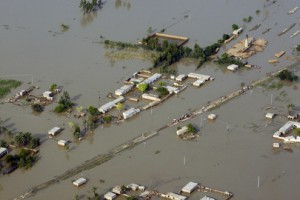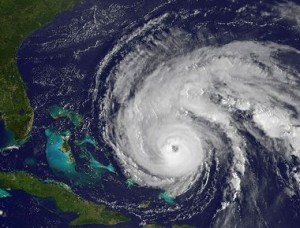Check out my blog posting for the Social Capital Markets Impact Challenge. The Social Capital Markets Conference convenes innovators who work at the intersection of money and meaning. A major focus of this year’s conference, which takes place in San Francisco during the first week of October, is discussion of the recent report by Hope Consulting on Money for Good. That report found that there is a $120 billion untapped market of individuals who want to have a positive social impact with their investment. With so many entrepreneurs seeking funding to make that impact, the challenge is to discover how to unlock that $120 billion market opportunity. I invite you to read and comment on my blog posting at the Social Capital Markets site, as I am eager for your feedback.
Archive for September, 2010
Happy Labor Day
Tuesday, September 7th, 2010Labor Day marks the end of the summer season and the beginning of back to school excitement. It also begins, we hope, more intense commercial activity, as business slows in July and August when decision makers are on vacation. The weather in New York couldn’t be better for the three-day weekend: sunny and mild with temperatures in the 70s. As I reflect on my summer fun, my fondest memories were the concerts in the parks of the New York Philharmonic. I took this photograph of the concert I attended with a group of friends on July 13. The Philharmonic presented a great program with works from Tchaikovsky, Ravel, Wagner and even the dances from West Side Story. Unfortunately, the fireworks display was canceled when rain was forecast. The rain didn’t materialize and the concert was presented in full. Missing the fireworks was disappointing, but no matter. I sat with friends on blankets and lawn chairs on the grass of Central Park enjoying great music, great friendship and a picnic. Now with the heat breaking, we can look forward to sailing on the Hudson River this fall. I wish you all a relaxing holiday weekend to recharge as we prepare for the busy months of autumn.
Pakistan Submerged
Sunday, September 5th, 2010Since the monsoon rain season began last month, floodwaters have devastated Pakistan. The floods have displaced more than 20 million Pakistanis, a number that exceeds the entire population of New York State. One fifth of Pakistan’s land mass is submerged, as shown in this photograph provided by the United Nations. Many communities are isolated as traditional transport routes are no longer viable. It is truly a humanitarian crisis with urgent needs for water, food, shelter and sanitation. Public health officials fear the spread of water-borne diseases, such as cholera. For more information about Pakistan’s pressing needs, please click unicef-immediate-needs-document-pakistan-flooding-26-august-2010 to download a current report from the U.S. Committee for UNICEF. To make a contribution to UNICEF for Pakistani flood relief, clear here for a direct link where you can donate online.
I also want to introduce you to Kashf Foundation, an organization that provides sustainable financial services to poor women in Pakistan, allowing them to become economically self-sufficient. I had the privilege to meet Roshaneh Zafar, Kashf’s founder, when she served on the UN Advisors Group for Inclusive Financial Sectors. Click here to learn more about Kashf and how you can support their important work.
SBA Recovery Loans Perform as Predicted
Saturday, September 4th, 2010On March 23 of last year, I posted a blog entry critical of the America’s Recovery Loan Program of the U.S. Small Business Administration. Specifically, I wrote that to mitigate the moral hazard risk (inherent in raising federal government loan guarantees), the SBA stipulates that the loans “are to be extended only to ‘viable’ small businesses, which it defines as those that have ‘demonstrated an earnings history and a proven record for success that may just need a little extra help to get through a short-term downturn’. (Shouldn’t all loans be limited to ‘viable’ businesses? And how did the SBA determine that the current economic downturn will exist only for the ‘short-term’?)”
On June 17, 2009, I posted a follow-up entry to write that there may be relatively few qualified applicants to apply for this program given its unusual requirements and that banks would not likely find the 2 percent premium paid by the government sufficient compensation for the onerous underwriting requirements.
Here we are a year later. The Recovery Loan program expires this month and the SBA has approved just fewer than 8,300 loans, even less than the modest number (10,000) of loans that the SBA had funds available to support. The New York Times has reported that meeting the “struggling but viable” criteria proved difficult for small businesses and banks had little appetite for the extensive underwriting requirements. When you contrast this lame “recovery” program with the Troubled Assets Relief Program (TARP) that bailed out Wall Street, it makes it clear where Congress’ priorities lie.
Next in the Alphabet: Earl, Fiona, Gaston
Thursday, September 2nd, 2010Next in the queue: Earl, Fiona, Gaston, with Hurricane Earl now upgraded to a Category 4 storm and approaching the East Coast by late today. According to the National Hurricane Center, “Only a small western deviation of the track to the west would bring the core of the hurricane to the coast.” In preparation for this contingency, mandatory evacuation orders have been ordered for North Carolina’s Outer Banks and Cape Hatteras. Earl is a particularly volatile storm, having been downgraded to Category 3 earlier yesterday, but then revised to Category 4 by the end of the day. Earl’s maximum sustained winds have reached 135 miles per hour and may continue to accelerate. North Carolina is bracing for the possibilities of breaking waves up to 15 feet in height, four-foot storm surges and tornadoes. As the storm continues to move up the Atlantic coast, the long duration of its force winds threaten widespread power outages. By Friday, Earl should be pummeling the Mid-Atlantic States with heavy rains and winds before continuing its projected course over Newfoundland. At the present time, a hurricane watch now extends as far north as Nantucket and Martha’s Vineyard in Massachusetts. The severe weather over the holiday weekend will likely cause revenue losses for businesses in the tourism industry, as the last weekend of summer typically attracts beachgoers. But mitigate the losses by making sure you are prepared. I am doing my grocery shopping and errands in anticipation of working at home tomorrow.
Even the Bureaucrats Don’t Understand Bureaucracy
Wednesday, September 1st, 2010I must have a perverse sense of humor, but I did see something funny in the recent controversy over New Jersey’s failure to secure $400 million in federal funds from the federal government in connection with the Race to the Top program. The State’s Education Department submitted the figures for the wrong program year, confusing 2011 with 2009, in New Jersey’s grant application, causing a five-point deduction in the state’s application for education stimulus funds. Finger pointing ensued, with educational leaders outraged with the rigid approach that resulted in NJ’s disqualification. NJ Governor Christie created a memorable photo opportunity when he tapped his finger on the 1,000+ pages of the Race to the Top application, highlighting its needless complexity. Of course, both sides missed the point: improving education is the goal, not figuring out how to shuffle funds between Peter and Paul.
But for anyone who has ever been through the process of dealing with federal disaster relief agencies, both the Federal Emergency Management Agency and the Small Business Administration, it is humorous. The federal government’s interest is in preserving its own bureaucracy, not in aiding disaster relief. You need a PhD in bureaucratese to navigate this opaque system. So to see the state bureaucrats at a disadvantage in dealing with federal bureaucrats brought a smile to my face. Because we are all at a disadvantage in dealing with federal bureaucrats.




